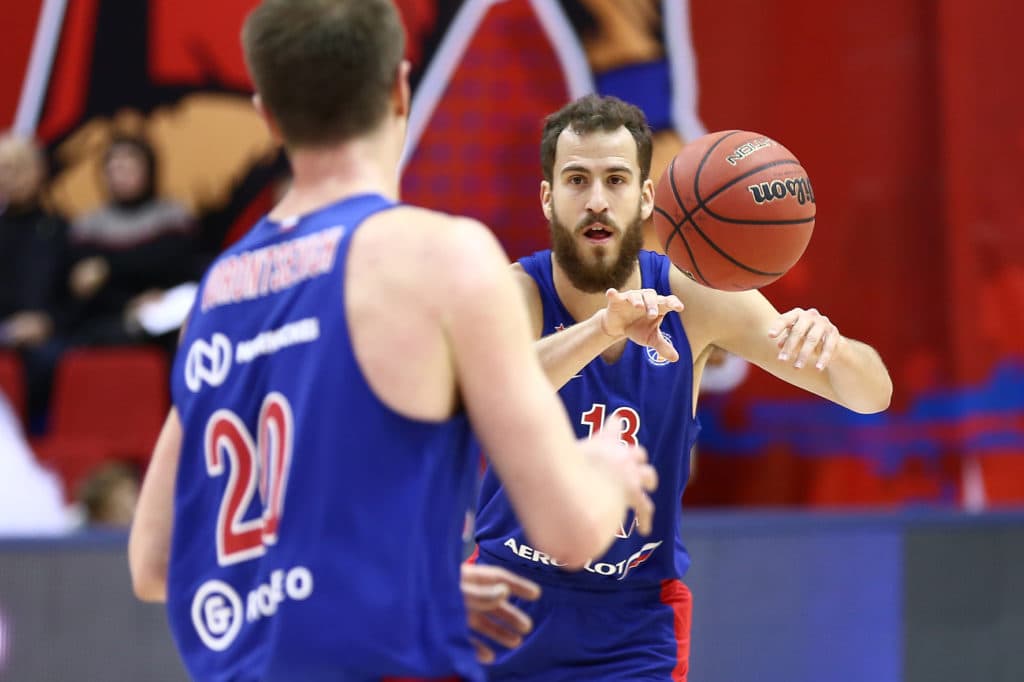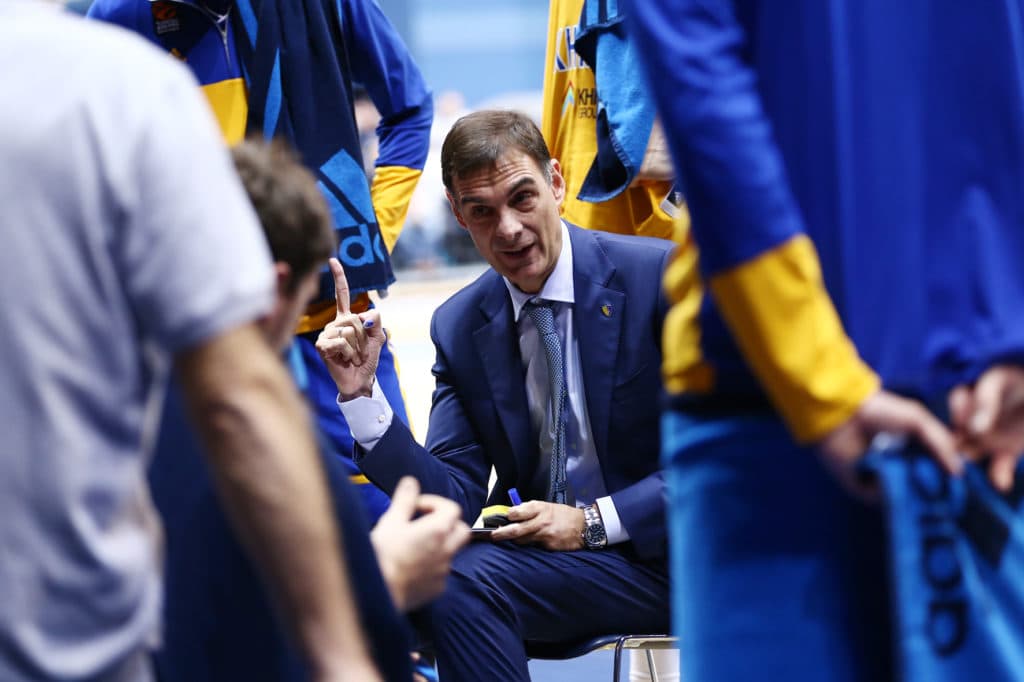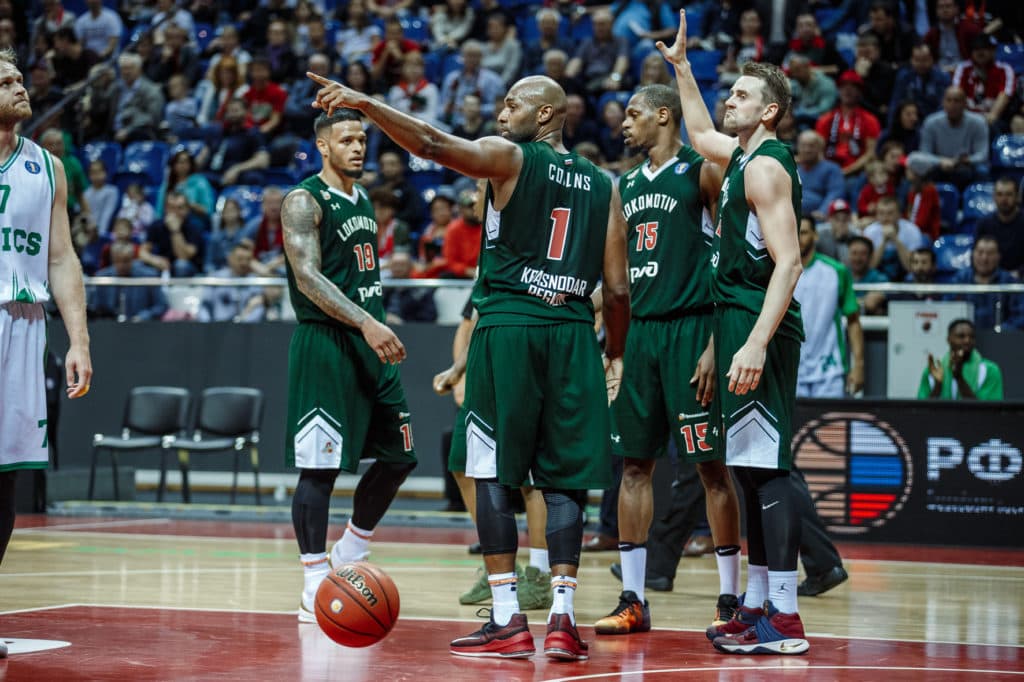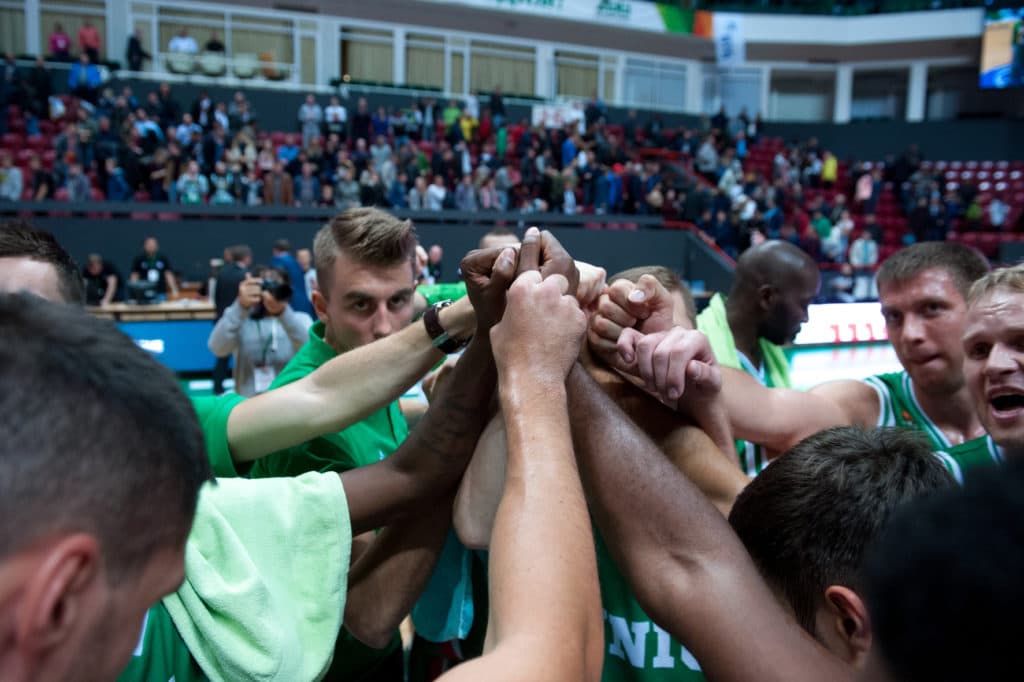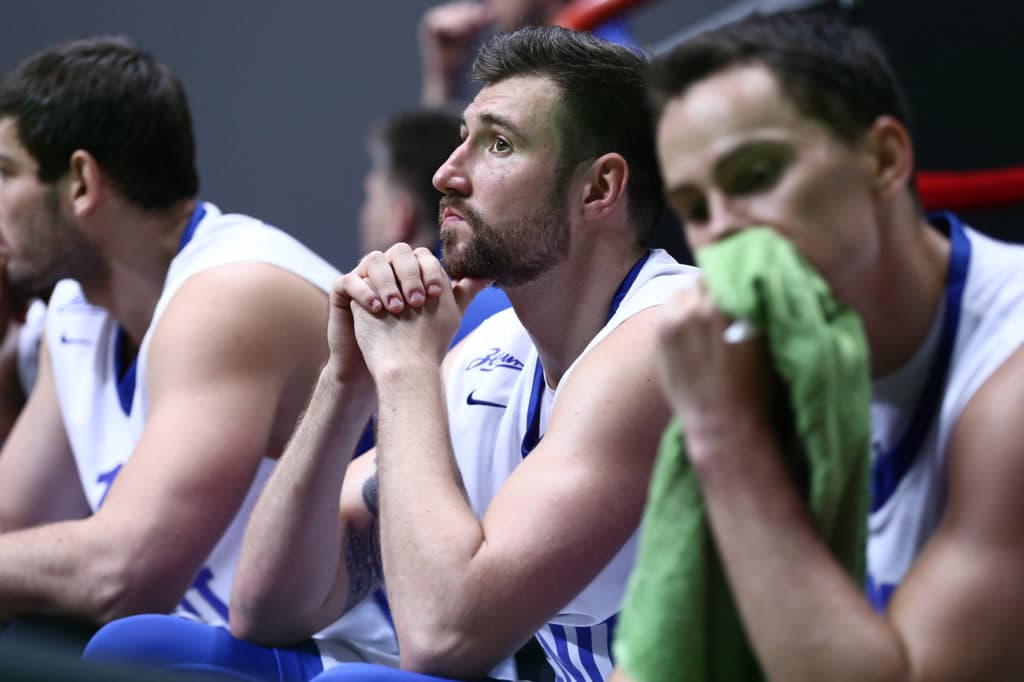After analyzing the early action in the VTB United League, Dmitry Gerchikov has one question for each of the top contenders. The season, and the fate of the title, could depend on how they respond.
Let’s be honest. It would take a remarkable turn of events for this season’s pool of contenders to change. Only a few weeks in, it’s evident CSKA’s individual talent, Khimki’s depth, Kazan’s balance, Loko’s discipline and Zenit’s speed make these teams stick out from the crowd. Miserable strategy or a terrible rash of injuries are about the only things that could knock one of these clubs out of the League’s top five. Given the coaching talent in place at each of these clubs, it’s unlikely to happen.
With that in mind, let’s take a deeper dive into the factors that could provide some separation within the top five and impact the title race.
CSKA. How quickly will the playmakers adapt to the Itoudis model?
The reigning champs are unbeaten to open the VTB United League season, but it hasn’t always been pretty. For most of October, CSKA has been running on a single engine: the indefatigable Nando De Colo as the rest of the backcourt struggles to make an impact. The French guard does it all for CSKA: playmaking, scoring and clutch decision-making. Of course, De Colo has options when necessary. Point forwards such as Andrey Vorontsevich have helped diversify CSKA’s attack, overwhelming beleaguered defenses and opening up space for De Colo to go back on the offensive.
On the European stage, however, the opposition has had more success disrupting CSKA’s ball movement and forcing one-on-one play. Real Madrid harried Moscow’s backcourt into 17 turnovers against five assists, cruising to a win at home in the EuroLeague. Expect the club’s VTB United League rivals to take a similar approach, especially Khimki and Lokomotiv with their loaded backcourts. The top teams in the League are almost all known for defensive discipline and will certainly try to take advantage of Moscow’s early struggles.
Itoudis needs to get the rest of the offense clicking, and soon. It’s been weeks now since EuroBasket ended and the team began practicing at full strength. If these problems aren’t addressed, they could become more and more chronic. Meanwhile, the opposition is taking notes and would love to exploit CSKA’s flaws before they are fixed.
Khimki. Will players sacrifice individual ambition for the greater good?
Moscow Region is in the midst of a complex rebuild. With a lot of moving pieces, everybody’s working hard, but it’s going to take time for things to fall into place.
Give credit where it’s due: Georgios Bartzokas did a masterful job in the offseason. He’s also done a terrific job of guiding his team in the opening weeks: Look no further than the statement win over Spanish champs Valencia in the EuroLeague. But it’s hard to form a clear picture of Khimki’s potential at this point in the season. They may be winning games, but it sometimes feels like everyone’s trying to do a little too hard. Whether competing for playing time or angling for a bigger role on the team, there’s something of a selfish streak on the club that has discouraged unity on the court. Alexey Shved’s star status and Bartzokas’s emphasis on defense are the two constants, even if the two dynamics appear somewhat contradictory.
Khimki needs to get on the same page as soon as possible. The team might get by against an opponent like Zalgiris without much depth on the perimeter, but UNICS won’t be as forgiving. Likewise, an over-reliance on Shved could come back to haunt in the postseason if he goes cold and no one’s prepared to step up. Of course, Bartzokas will be working furiously to ensure his team is prepared long before that happens.
Lokomotiv-Kuban. Will going seven-deep be enough to win?
Kuban started the season with a lot of momentum, exhibiting a high level of play (including a clutch finish vs. Limoges) and tremendous individual performances (see the blowout vs. Kalev). That sparked talk that Sasa Obradovic may have finally assembled the perfect roster to fit his philosophy. With the team seemingly clicking chemistry-wise, could Loko target the same ambitions as it did a few seasons back under Bartzokas? It’s a real possibility, given Kuban’s patient, hard-working approach to success. Loko’s players understand the value of self-sacrifice and are willing to put in the work necessary to build an elite team from perhaps less-than-elite pieces.
The biggest concern right now is the lack of depth. You can’t compete in the EuroCup and the VTB United League with only seven players. After the League’s schedule expanded a few seasons back, everyone was forced to expand the roster or suffer the consequences in spring. So far, however, Loko has been heavily dependent on its newly-signed foreign contingent. Perhaps, as the season progresses, Kuban will work on expanding the rotation, which could help prevent 4th-quarter collapses like Saturday against UNICS. If Loko doesn’t adjust, the accumulated stress and fatigue by the end of the season could ultimately derail the team’s ambitions.
UNICS. How do you avoid a drop-off?
Say what you want, but Dimitrios Priftis is responsible for the VTB United League’s most surprising team to open the season. In one summer, Kazan managed to jettison all of its problems and assemble a modern, trendy team. The roster is deep, with almost everyone playing 10 minutes or more, helping the stars stay fresh for end of game situations. The team is shooting a League-leading 45% from beyond the arc, while dishing out 22 assists per game, good for 3rd-best. It’s hard to find a weakness, especially since every player understands his role and works hard to execute.
Kazan’s biggest challenge could be staying the course over a long season. UNICS had an element of surprise to open the campaign and a favorable schedule, but the game against Loko showed that the opposition is starting to catch on. If not for the 4th quarter, when the Railwaymen turned ice-cold on offense, the Tatar club could easily have left Krasnodar with a loss. Add in the EuroCup, which will only grow more difficult as the season progresses, and it’s obvious UNICS is going to have a tough time maintaining its momentum. Not to mention, expectations will rise with each successive win. Priftis and the coaching staff need to work hard to keep the guys focused and hungry over the long haul.
Zenit. How do you improve the defensive intensity?
St. Petersburg plays an exciting brand of basketball that the fans love. And who’s to blame them? Zenit stocks the weekend highlights like clockwork, flashing athleticism and dazzling fast breaks every time out. But the defense is far from elite at this point in the season. Karasev’s club is giving up an average of more than 80 points per game. Even Tsmoki-Minsk has better numbers, despite a much smaller budget. Worse, Zenit’s stars sometimes try to do too much on offense, leading to easy fast-break opportunities for the opposition, with Marko Simonovic often hung out to dry in the paint. UNICS took advantage of Zenit’s disorganized defense in the season opener, cruising to a blowout win. Several weeks later, VEF almost made Zenit pay again for its lackadaisical defense, missing out on an upset by the thinnest of margins.
Of course, St. Petersburg needs some time to put everything together after a complete roster makeover. But Kazan and Khimki also made sweeping changes, and have adapted much more quickly. Karasev’s preference for an up-tempo offense is no excuse either. Even when you’re aggressive on offense, giving up easy baskets should not be an option. St. Petersburg has work to do, perhaps the most of any top contender at this point in the season.


















